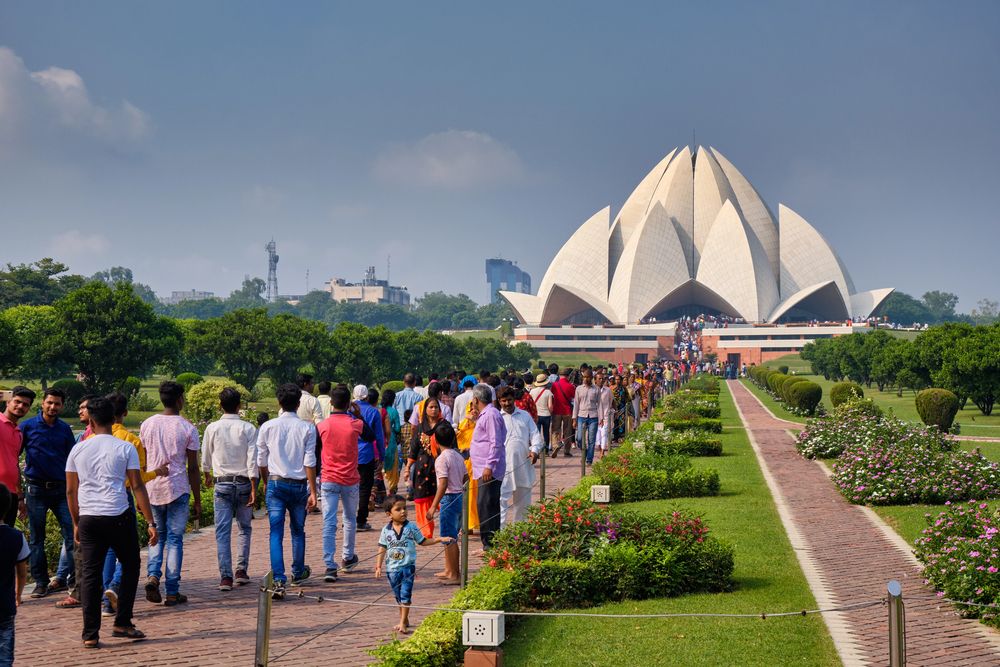Ask a Bahá’í: Where was the Short Obligatory Prayer first mentioned in the Bahá’í writings?
What do you want to ask A Baha’i? Submit your question online here or in the form below.
Commentary by Daniel Pschaida | FāVS News
The Short Obligatory Prayer may be found in official English translation here and translations into many other languages here.
In the original Arabic, it may be found here or here.
It was revealed by Bahá’u’lláh in ‘Akka (Ottoman Empire) after he revealed “The Most Holy Book” (Kitáb-i-Aqdas) in 1873. Bahá’u’lláh prescribes the law of obligatory prayer in the text of “The Most Holy Book” itself, even though as a matter of wisdom he “set forth the details of obligatory prayer in another Tablet” (or writing) that was not generally distributed or implemented for years. This was likely to protect Bahá’ís from additional attention and persecution for praying differently than the way of the Muslim population around them.
Initially, there was an obligatory prayer with nine cycles, called rak‘ahs, of standing and bowing down in prostration. This initial obligatory prayer, however, was eventually superseded by his revelation of the three obligatory prayers — the long, the short or the medium — in his writing the “Tablet of Obligatory Prayers,” likely written sometime around 1884 or 1885. That began to be distributed by hand a few years later (beginning in 1887/1888).
We read in a forthcoming publication “Exploring the Kitáb-i-Aqdas” by Omid Ghaemmaghami and Shahin Vafai:
“The earliest confirmed publication of the obligatory prayers in their original Arabic was in 1911, though they would have been duplicated by hand and distributed before then. The prayers were subsequently published in Egypt in 1920. While on pilgrimage in 1899, an American Bahá’í obtained a copy of the Medium Obligatory Prayer and had it translated into English and published that year. A 1905 publication contained English translations of the Short and Medium Obligatory Prayers. Shoghi Effendi’s translations of the three obligatory prayers were first released in a small booklet in 1937…“

A Bahá’í is free to choose any one of these prayers in a given day to fulfill the law of obligatory prayer for that day. Shoghi Effendi — authorized interpreter and Guardian of the Bahá’í Faith — included his authoritative translations of these prayers as part of the compilation of Bahá’u’lláh’s prayers “The Prayers and Meditations of Bahá’u’lláh,” first published in 1938. Each of these prayers also appear as supplement of Writings in the official translation into English of “The Most Holy Book” in 1993.
Bahá’u’lláh says in “The Most Holy Book” that his laws are “the lamps of My loving providence among My servants, and the keys of My mercy for My creatures.”
Bahá’u’lláh further writes, “As for thy mention of the Obligatory Prayer: In truth, anyone who readeth this with absolute sincerity will attract all created things, and confer new life upon the world of being.”
On prayer, ‘Abdu’l-Bahá says, “It behoveth the servant to pray and to seek assistance from God, and to supplicate and implore His aid. Such becometh the rank of servitude . . . .”
In commenting upon the Short Obligatory Prayer, Shoghi Effendi says,
“The meaning of the short prayer . . . is simply that Bahá’u’lláh has put into one brief sentence the very essence of life, which is that we come from one Father, and pass, on the road of life, through tests and trials and experiences, so that our souls may grow; and that the reason for our existence is to learn to know and understand our Creator. As we do this, we will increase our love for Him and will worship Him. This is really the deepest joy that comes to any soul. All others are merely reflections of this happiness, the happiness that comes when we worship the God Who made us, our Heavenly Father.“
Although Bahá’ís fulfill the law of obligatory prayer in the original Arabic or in an official translation into their mother tongue, such as the English one, if you’re interested in learning it in the Arabic, here is an eloquent recitation.
The views expressed in this opinion column are those of the author. They do not necessarily reflect the views of FāVS News. FāVS News values diverse perspectives and thoughtful analysis on matters of faith and spirituality.
Ask a Baha’i
What questions do you have about the Baha’i Faith? Fill out the form below and our writer will get back to you by writing a column in response.








